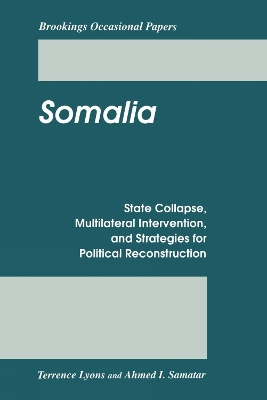The multilateral military intervention in Somalia was one of the international community's first major attempts to respond to a dangerous new challenge in the post-cold war era the problem of state collapse and social disintegration. Catastrophes such as Somalia reach public attention as humanitarian emergencies, but the underlying causes are the disintegration of political institutions and the resulting chaos and insecurity. Given the challenges inherent in such political crises, can the international community respond effectively to encourage political reconciliation and the rehabilitation of governing institutions?This book suggests that the international community ignored clear warning signs in Somalia and missed several opportunities to use diplomacy to prevent state collapse. As a result, the destruction of the state became more complete and the difficulties in rebuilding a viable system more demanding. When the United States and the United Nations finally intervened militarily in 1992, they focused on the humanitarian aspects of the emergency, thereby limiting their ability to act on the core political and security dimensions.
This book shows how lessons learned in Somalia will shape international responses in future cases. It details the deep- rooted social, political, and economic processes that led to the decomposition of the state in the early 1990s; analyzes the attempts by the international community to encourage political reconciliation; and offers guidelines for policymakers.
- ISBN13 9780815753513
- Publish Date 1 July 1995
- Publish Status Active
- Publish Country US
- Imprint Brookings Institution
- Format Paperback
- Pages 112
- Language English
